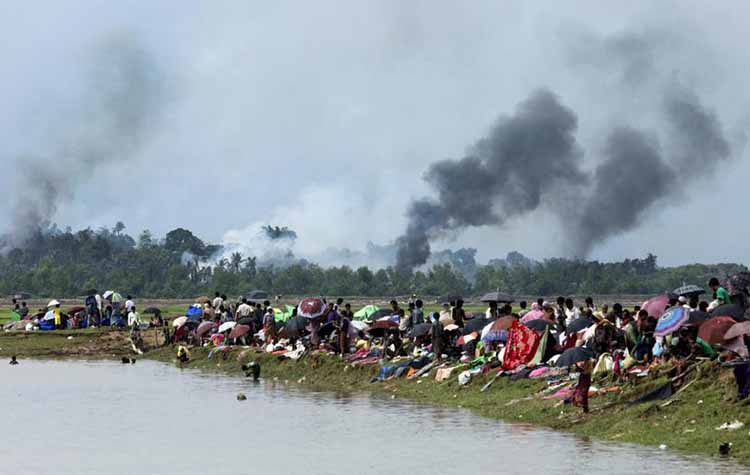(Bangkok/Geneva, 29 September 2017) – A decision adopted today by the 36th session of the UN Human Rights Council on Burma/Myanmar fell short of meeting the body’s mandate to respond promptly to human rights emergencies and prevent human rights violations.
The session began on 11 September with a warning from the UN High Commissioner for Human Rights that what is taking place in Burma/Myanmar seems to be a textbook example of ethnic cleansing. This view has also been reflected by the UN Secretary General. Twice in the last month, several UN Special Rapporteurs jointly raised concerns on violations in the country. Despite this, the Spartan text of the Council’s decision pays minimal attention to the serious situation on the ground and focuses only on extending the mandate of the independent international fact-finding mission on Myanmar.
‘While the Council’s decision to extend the mandate of the independent international fact-finding mission on Myanmar is welcome and commendable, it is unfortunate that the body has failed to adequately respond to the serious emergency that is unfolding on the ground,’ says R. Iniyan Ilango, UN Advocacy Programme Manager at the Asian Forum for Human Rights and Development (FORUM-ASIA). ‘While the decision does call for unhindered humanitarian aid and expresses grave concern on reports of violations and abuses, it is baffling that it does not clearly call for an immediate end to grave and serious human rights violations, which the High Commissioner has described as ethnic cleansing.’
‘We are witnessing one of the greatest human rights tragedies of our times. As the world’s highest human rights body, the Council and the rest of the UN have a duty to act,’ says John Samuel, Executive Director of FORUM-ASIA. ‘Almost half a million Rohingya refugees have crossed the border into Bangladesh since 25 August, which is nearly half of the estimated population of Rohingyas in Burma/Myanmar. If the UN does not take immediate action, there may soon not be many Rohingyas left in the country to be protected.’
‘It is essential that the Council’s decision sees strong follow up at the current session of the UN General Assembly through a resolution that clearly and adequately addresses the serious situation on the ground,” adds R. Iniyan Ilango.
For further information, please contact:
– United Nations Advocacy Programme, [email protected]
For the PDF version of this press-release click here




